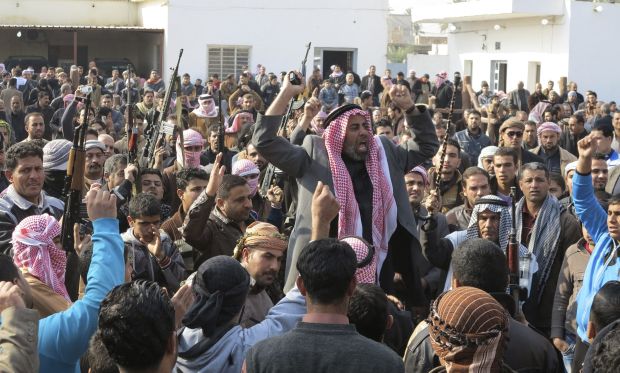There is a widespread conviction among the majority of Sunnis in Iraq that Iraqi MP Ahmed Al-Alwani’s death sentence was rooted in sectarianism of Nuri Al-Maliki’s government, which persecuted many of its opponents. Maliki’s government accused all those it saw as enemies of terrorism, forcing them to flee or be imprisoned. Therefore, Prime Minister Haider Al-Abadi shocked everyone when he said that he would not interfere in the workings of the judicial system, despite appeals from international organizations and Iraqi and Arab figures.
The aim of these appeals is not to convince Abadi to interfere in the course of justice in Iraq, or prevent the judiciary from making rulings. Rather, people are calling on Iraq’s prime minister to take into account the circumstances of Alwani’s arrest and the nature of the evidence presented against him. When he was sentenced, the security, military and intelligence services were all under the control of Maliki’s authoritarian government, which did not hesitate to fabricate cases and evidence against its opponents.
We also cannot forget how catastrophic was Maliki’s stance against the Albou Alwan tribe and its leaders in the Anbar province during that period proved to be; when he pushed army troops to hunt down his opponents, including those who gathered in public squares to protest, instead of fighting the Islamic State of Iraq and Syria (ISIS).
Maliki used state funds and resources to suppress those who disagreed with him, especially in the last four years of his rule. Alwani was not the only pursued in this way, because Maliki also targeted other rivals such as Tariq Al-Hashemi, Rafie Al-Issawi, and Saleh Al-Mutlaq. Maliki had previously accused Iyad Allawi of plotting a coup against him. In light of this, Abadi ought to reconsider the prosecution in the Central Criminal Court, especially since investigators affiliated to Maliki did not hesitate to fabricate cases and threaten the opposition during his rule. Alwani was an outspoken opponent of Maliki and his government as well as many Shi’ite leaders like Muqtada Al-Sadr. Alwani was among the few Sunnis who entered the political process and represented his province in the Iraqi parliament, defying criticism of extremists in Anbar who refused to have anything to do with the Iraqi state. Sentencing Alwani to death on sectarian charges is unjust, especially as extremist sectarian killers like Qais Al-Khazali, Watheq Battat and Ali Al-Yasiri are roaming the streets of Baghdad, just because they are Shi’ites. These imbalances are the reasons behind the chaos, terror and the emergence of ISIS. They are dragging the country towards more violence, and this threatens the unity and stability of Iraq.
If Iraq’s prime minister refuses to consider all these facts, he will disappoint a large segment of Iraqi people, who were optimistic about his assumption of power and hoped that justice would reign and sectarian feuds would end. This will be a setback to attempts by Abadi to broker reconciliation between the parts of Iraqi society, and will bolster the position of sectarian Sunni and Shi’ite figures. It is time for the government to act, rather than talk, about an Iraq for all.

Trackbacks/Pingbacks